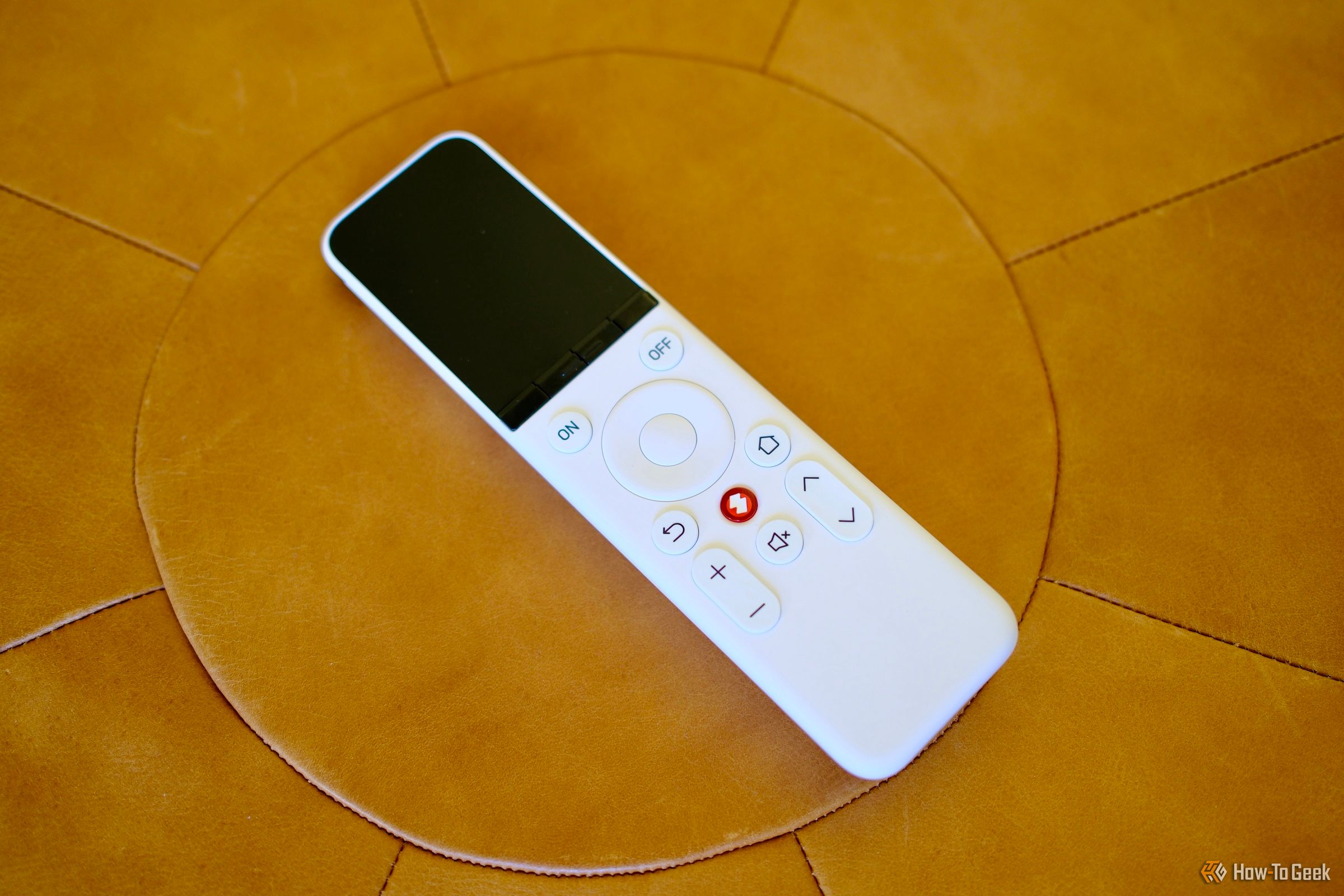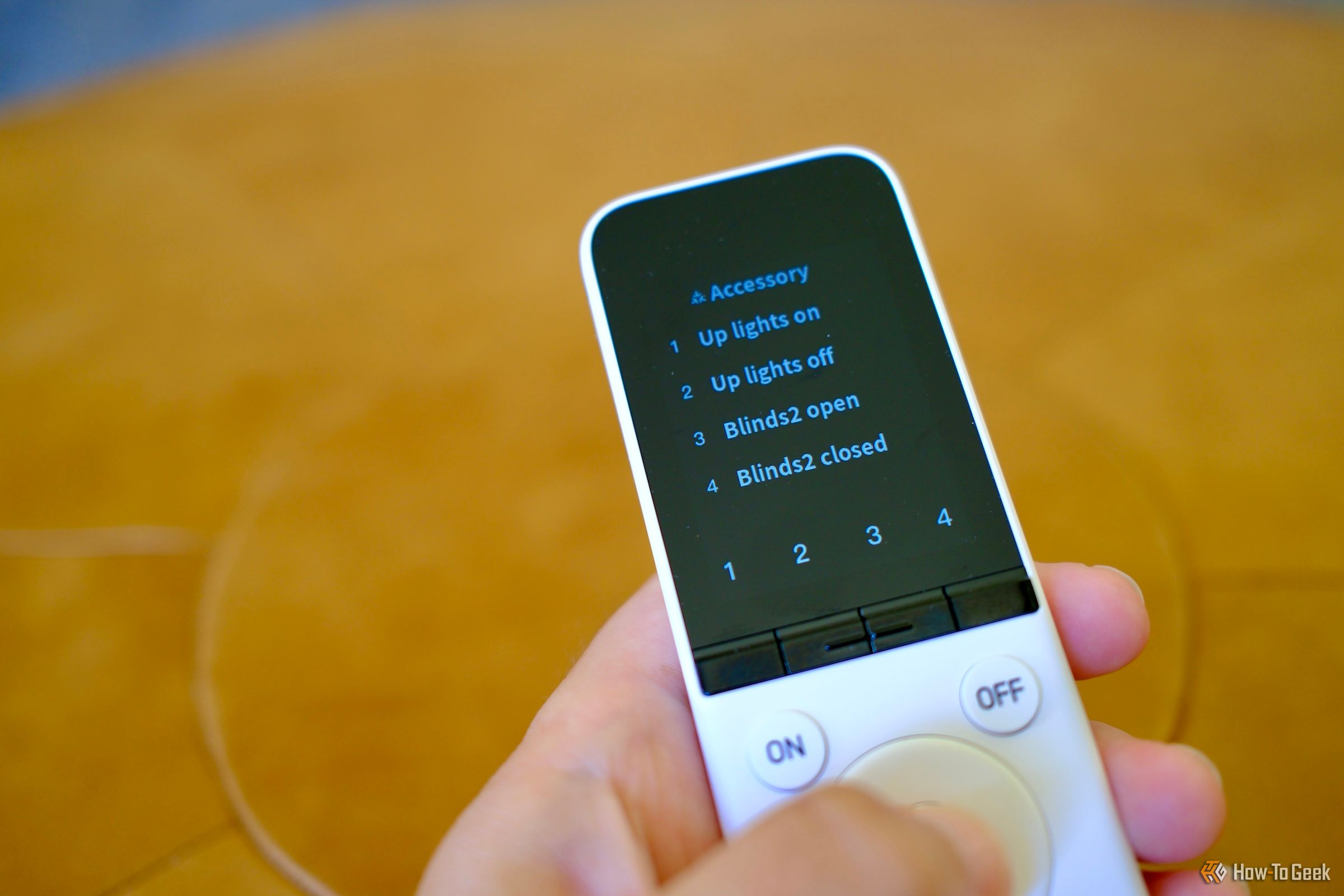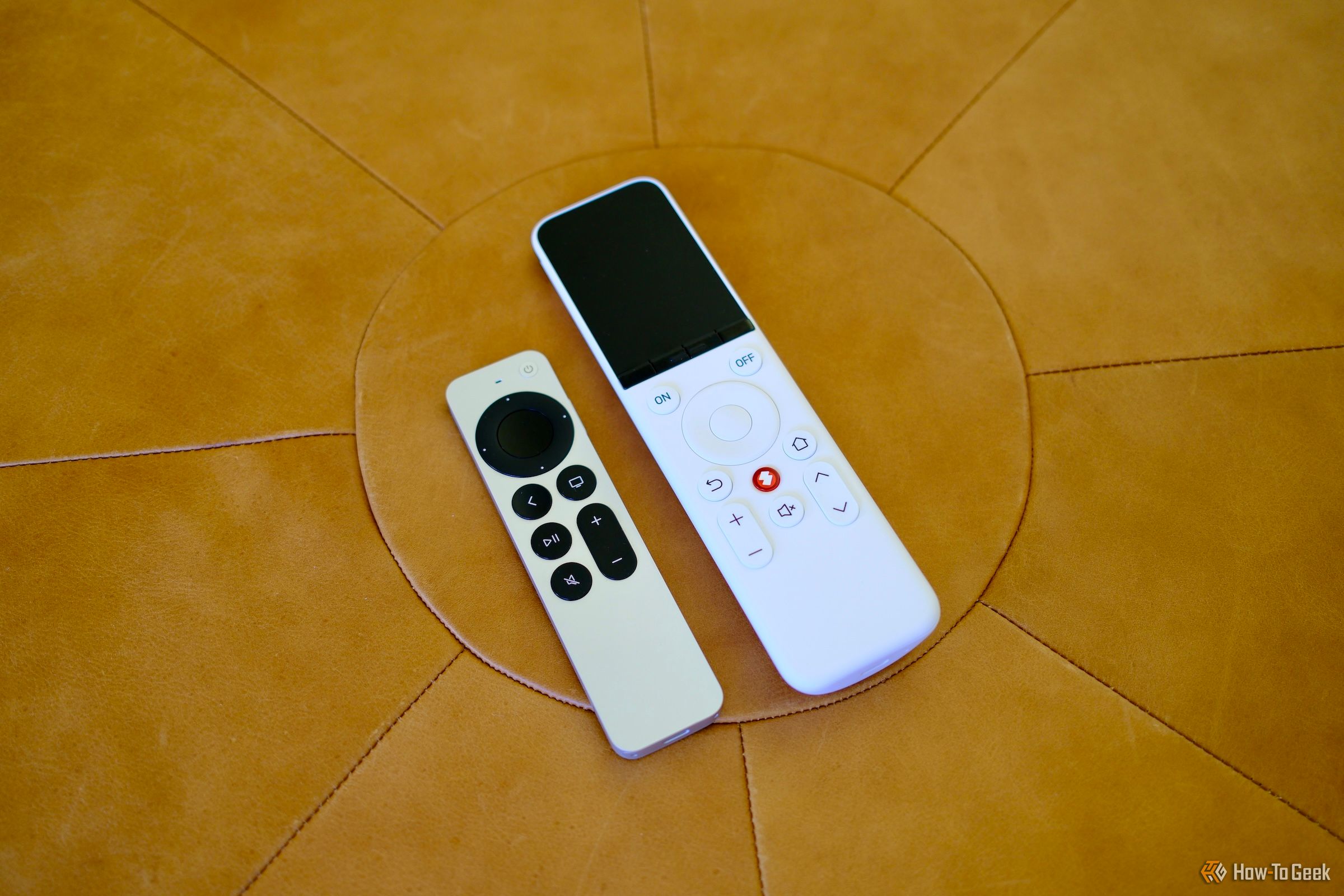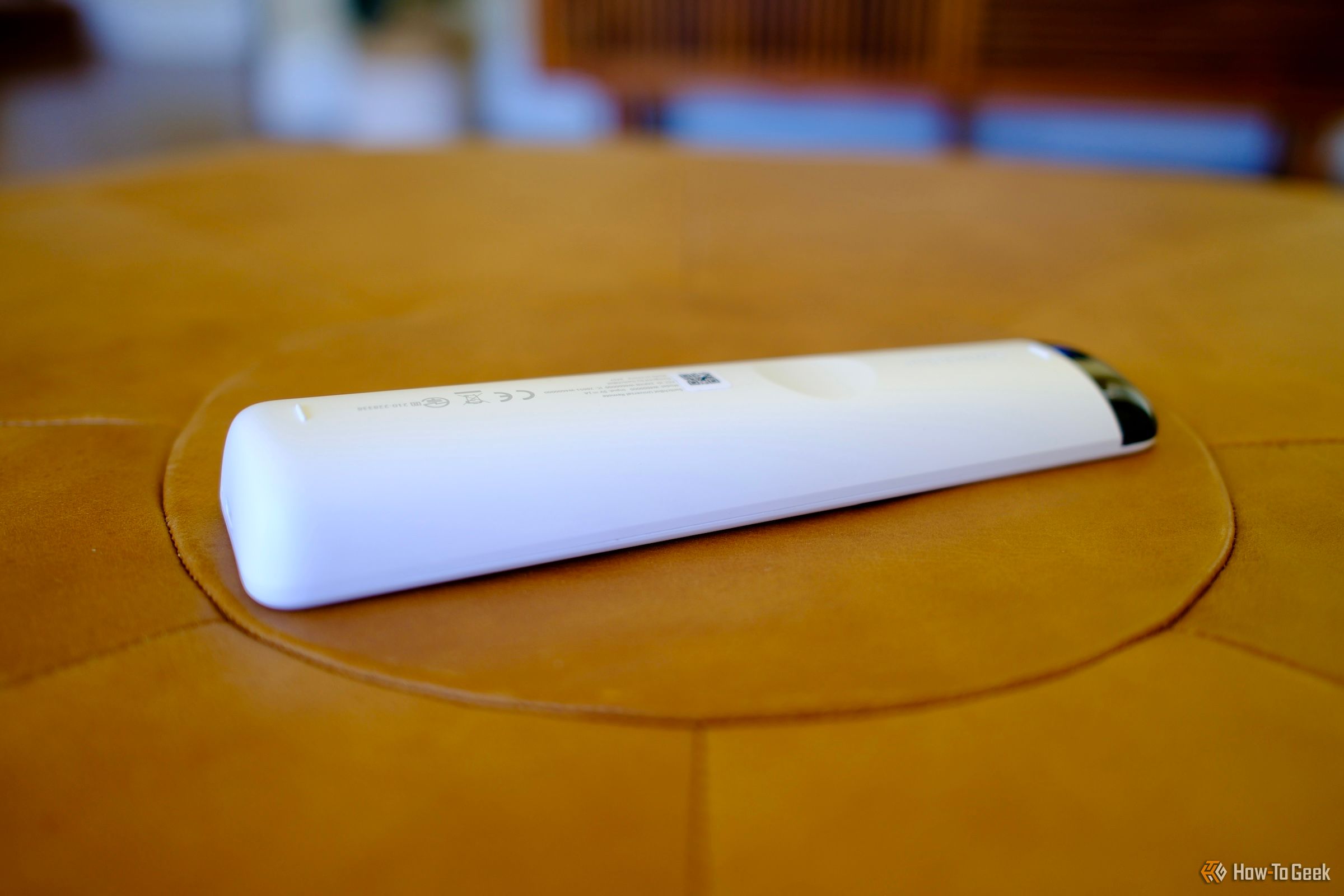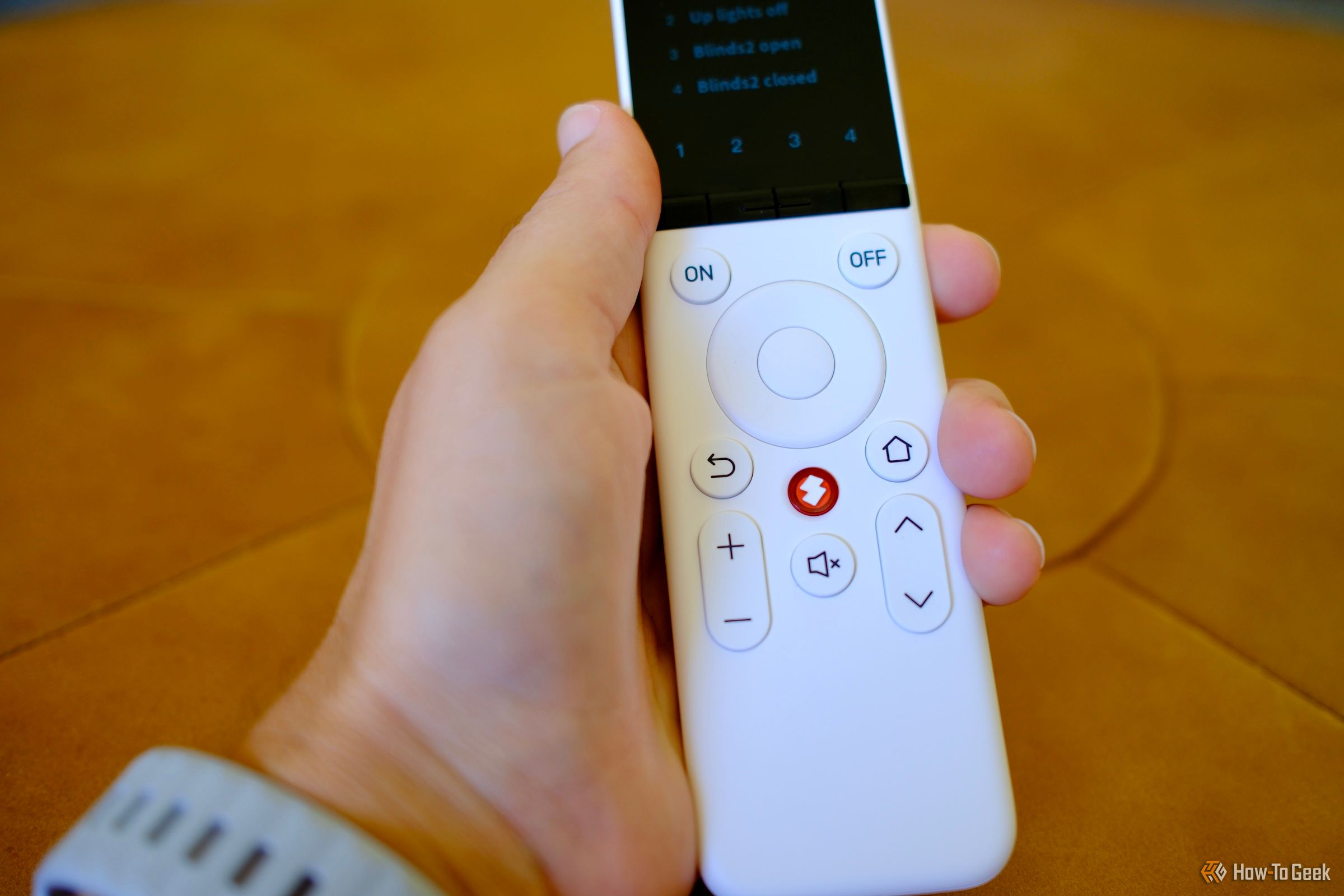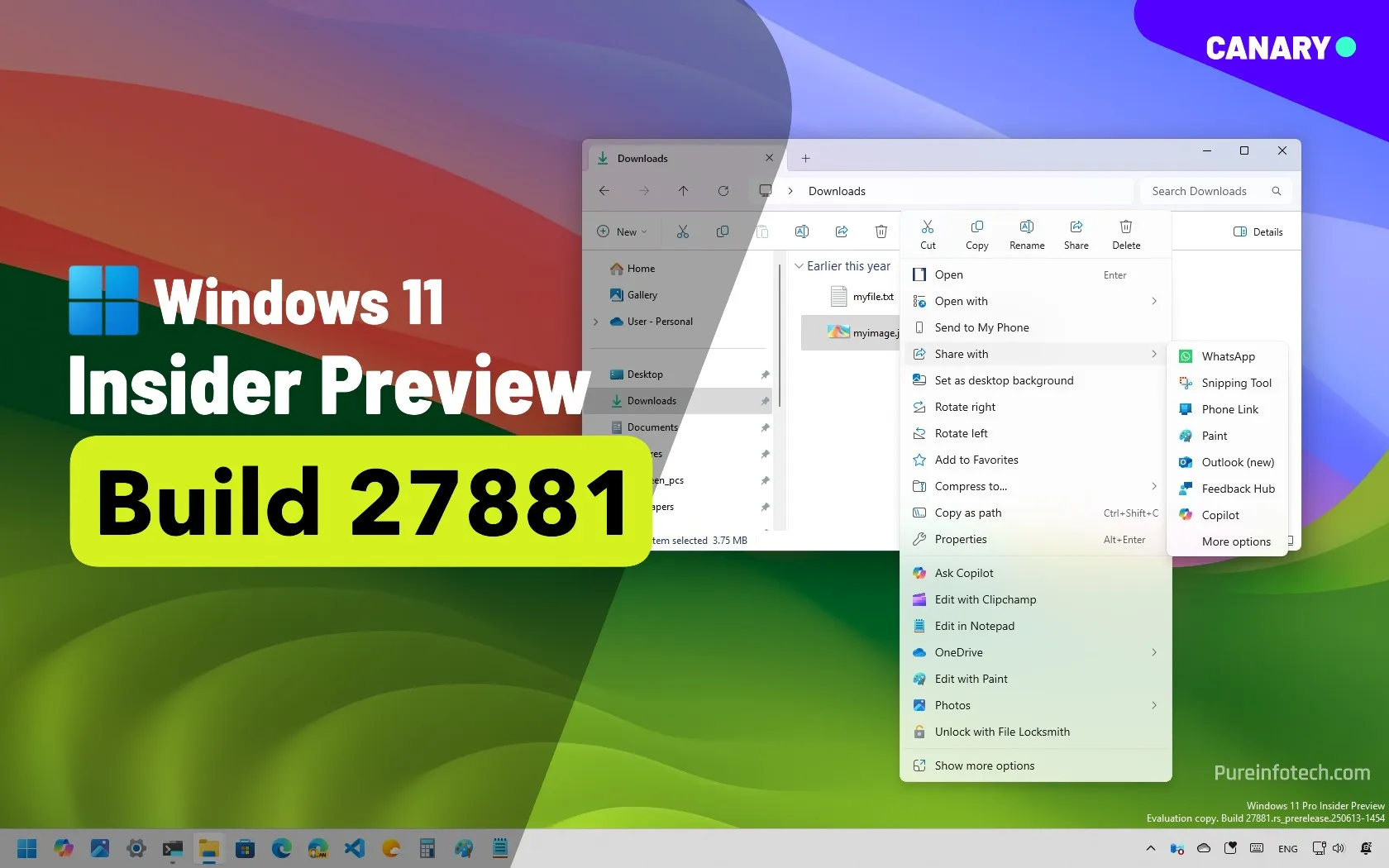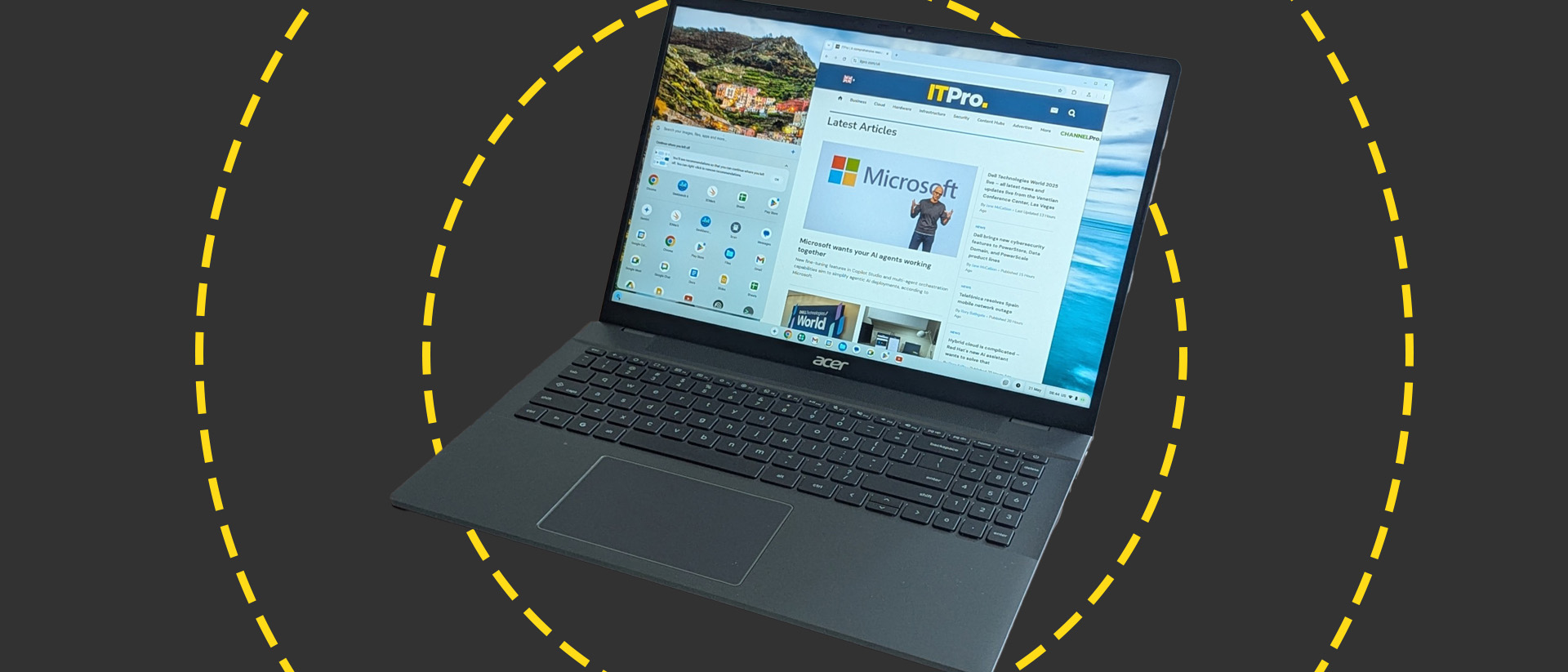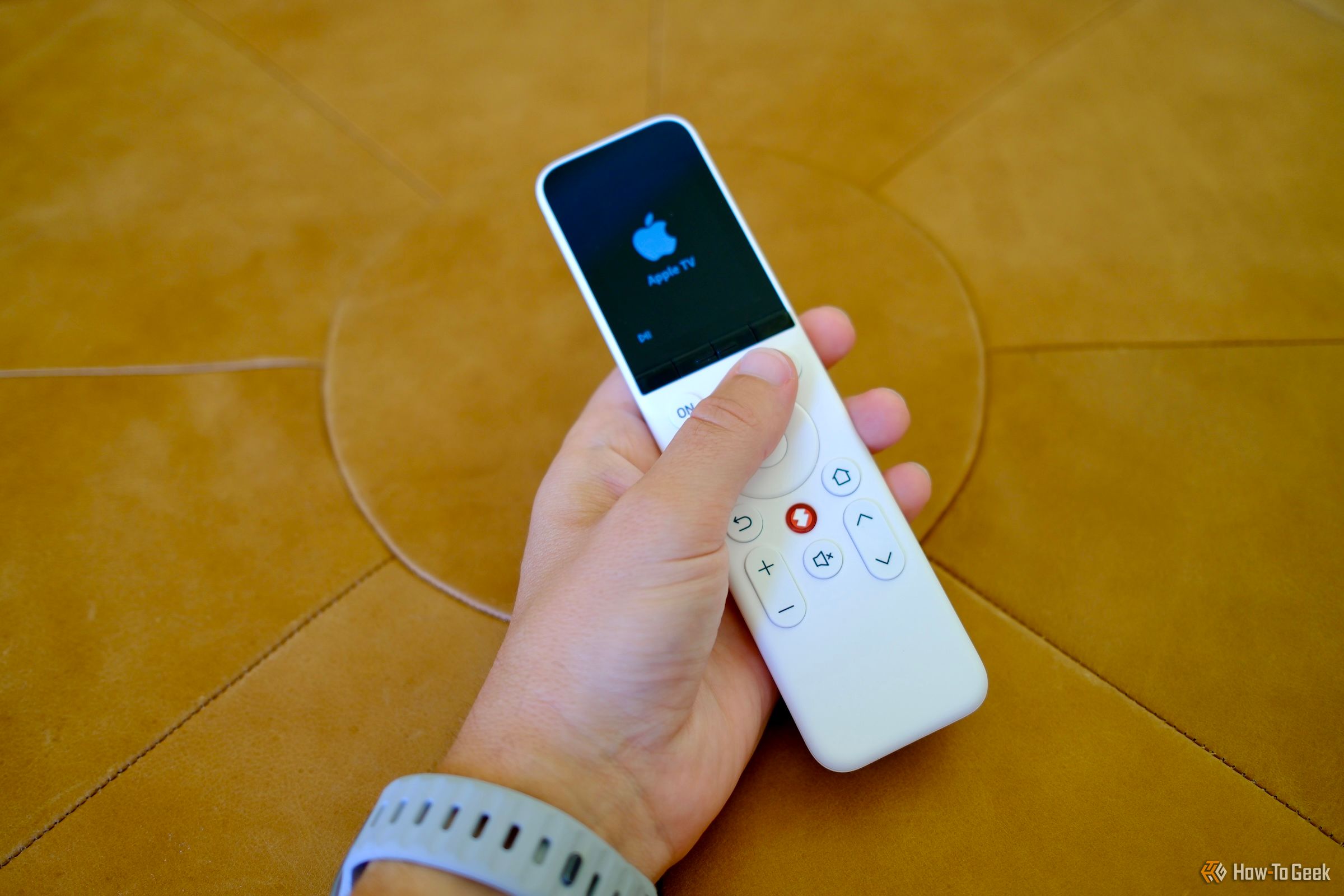
Key Takeaways
- The SwitchBot Universal Remote is lightweight and has a long battery life, but the setup is confusing and requires an additional hub for most functionality.
- The design is utilitarian and a bit boring, similar to traditional TV remote controls.
- Future updates may offer more features like support for Roku, NVIDIA Shield, and Android TV, but wait before purchasing.
The idea of a single universal remote control for your TV box (Apple TV or Amazon Fire TV) and other smart home products sounds compelling. Unfortunately, the Switchbot Universal Remote with Matter is a bit jumbled and didn’t introduce simplicity for me.
SwitchBot Universal Remote
Universal Remote can control Infrared appliances such as air conditioners, TVs, lights, fans, and projectors at home. It also supports controlling Fire TV, Apple TV, and SwitchBot Bluetooth devices. It supports up to 50 devices in total.
- Comfortable and lightweight
- Long battery life
- Connects to Matter devices and some connected TV boxes
- Remote requires a hub for most functionality
- Setup process can be very confusing
- Only four buttons allocated for Matter controls
- Bulky size
Price and Availability
The SwitchBot Universal Remote retails for $59.99. On its own, without a hub, however, not all features work. Switchbot sells a bundle with its Hub 2 for $109.99 or with its Hub Mini with Matter for $99.99.
Specifications
- Power Source
- Up to 150 days battery life
- Number of Devices
- Up to 50 devices total
- Smartphone compatible?
- Companion mobile app
- Screen
- 2.4in LCD
Getting Started Is a Tough Process
I was primed to love the Universal Remote from SwitchBot because I desperately want more ways to control the smart lights, blinds, and other connected devices in my house. That’s not sarcastic either. Yelling out for Siri is handy, but not always convenient. Neither is constantly needing to pull out my phone and open an app.
Unfortunately, right from the get-go, there were signs that this product was going to be trouble. The first wrinkle is that for Matter control, you need a SwitchBot Hub 2 (or Hub Mini). A secondary, albeit useful, device to add to the mix that can show the indoor temperature.
The setup process is convoluted to add SwitchBot’s Matter hub to Apple’s Home app and then link the Universal Remote through the Hub 2. That’s putting it gently.
The digital instructions through SwitchBot’s app can’t be enlarged and can be hard to read in places. Plus, there are just a lot of steps to follow and try and keep track of.
Long story short, setting up the remote is a gauntlet that I can imagine a lot of people getting frustrated by and possibly not making it through.
I ran into enough hiccups during and after the setup process, with commands not being synced or registered, that I wonder if, in the end, the result is worth the benefit for most people.
The Universal Remote Can do A lot, But Probably Won’t
What do you get if you actually successfully set up the remote? Well, you can use it to control an Apple TV box or Fire TV device. That means it could easily live in your living room and has an excuse to be out and readily accessible.
With a hub in tow, you can add four Matter commands to the remote. I used one button to lower my smart blinds, one button to raise them, one button to turn on a set of lights, and the last button to turn that set of lights off. So my Universal Remote is only controlling two smart devices.
If you have a supported DVD player, fan, air conditioner, or other device with infrared control, you can likely add it to the remote. I didn’t have any supported device. Also, SwitchBot’s own products, which it now has many, can be controlled with the remote.
I was told by the company that you can use the remote without a hub to control an Apple TV or Fire TV over Bluetooth, but you won’t get most of its other features without a hub. I liked the feel of the Universal Remote, but not more than Apple’s newest Apple TV remote. I wouldn’t opt for SwitchBot’s remote instead of the first-party one.
The Design Is Nice Enough but a Little Boring
The design of the Universal Remote feels mostly utilitarian. It’s large and chunky, but it’s not overly heavy. It has a 2.4-inch LCD screen that I found to be bright and spacious enough. The screen isn’t overly impressive, but it gets the job done.
The screen isn’t touch-sensitive, which I actually prefer. Any on-screen text corresponds to physical buttons just beneath it.
Under the screen, a smattering of generic buttons includes a home icon, a plus and minus rocker, arrow keys, and a circular directional control. Even though the screen isn’t touch-sensitive, the circle can be. You can slide your thumb around it, instead of clicking. By default, that functionality is turned off. I tried it and it worked fine, but I eventually turned it back off.
The remote’s buttons are clicky enough and laid out well. The design is thoughtful and sparse enough not to be confusing, but that does mean it looks a little boring. At first glance, it could be any cable box remote control. I don’t think its design hampers any functionality, but it also doesn’t enable any.
Despite being a device for the entire home, it’s not a controller that begs to be carried around. The Universal Remote looks like a TV remote and probably best serves its purpose by being left in front of a TV—while still being able to manipulate devices across the home. If you do manage to misplace the large device there’s a feature in SwitchBot’s app to have the remote make a sound.
The Future of This Device Could Be Amazing (But Wait for It)
Even though the Universal Remote isn’t as full-featured as some people might hope for now, there’s at least a chance updates will improve it in the future. The company has stated that support for Roku, NVIDIA Shield, and Android TV is coming in the future.
Similarly, Alexa and Google Home support are said to be coming in the future as well. The remote is continuing to get software updates to rid it of bugs too. This is all great and encouraging, but don’t buy the Universal Remote now if you plan on using it with one of those devices. Wait until the features are released.
Battery Is a Highlight
The best feature of the SwitchBot Universal Remote is its battery life. That consolation prize is not enough to save the remote’s total functionality, however. The use of only a couple of Matter-connected devices and a Bluetooth Apple TV remote didn’t cause overly frequent use, but every time I did pick it up I was continually surprised by the high battery percentage.
SwitchBot advertises a 150-day battery life and even though I haven’t used the remote for half a year, that number doesn’t shock me. When I did test recharging the remote, the USB-C port at the bottom powered it up quickly.
Should You Buy the SwitchBot Universal Remote?
Unless you have a very specific need that you’re sure the SwitchBot Universal Remote can address currently, I would avoid it—for now. The biggest reason is that connecting the remote through Apple’s Home app to reach Matter devices is just too complicated to be worth the hassle. It can be a bit confusing to adjust Matter controls after the initial setup, too.
The execution of using the remote for an Apple TV is fine but felt a tiny bit sluggish compared to Apple’s own remote. Pointing the remote at IR devices is limited. The idea of a universal remote control for your whole home is compelling, but the execution misses the promise a little too much—so far.
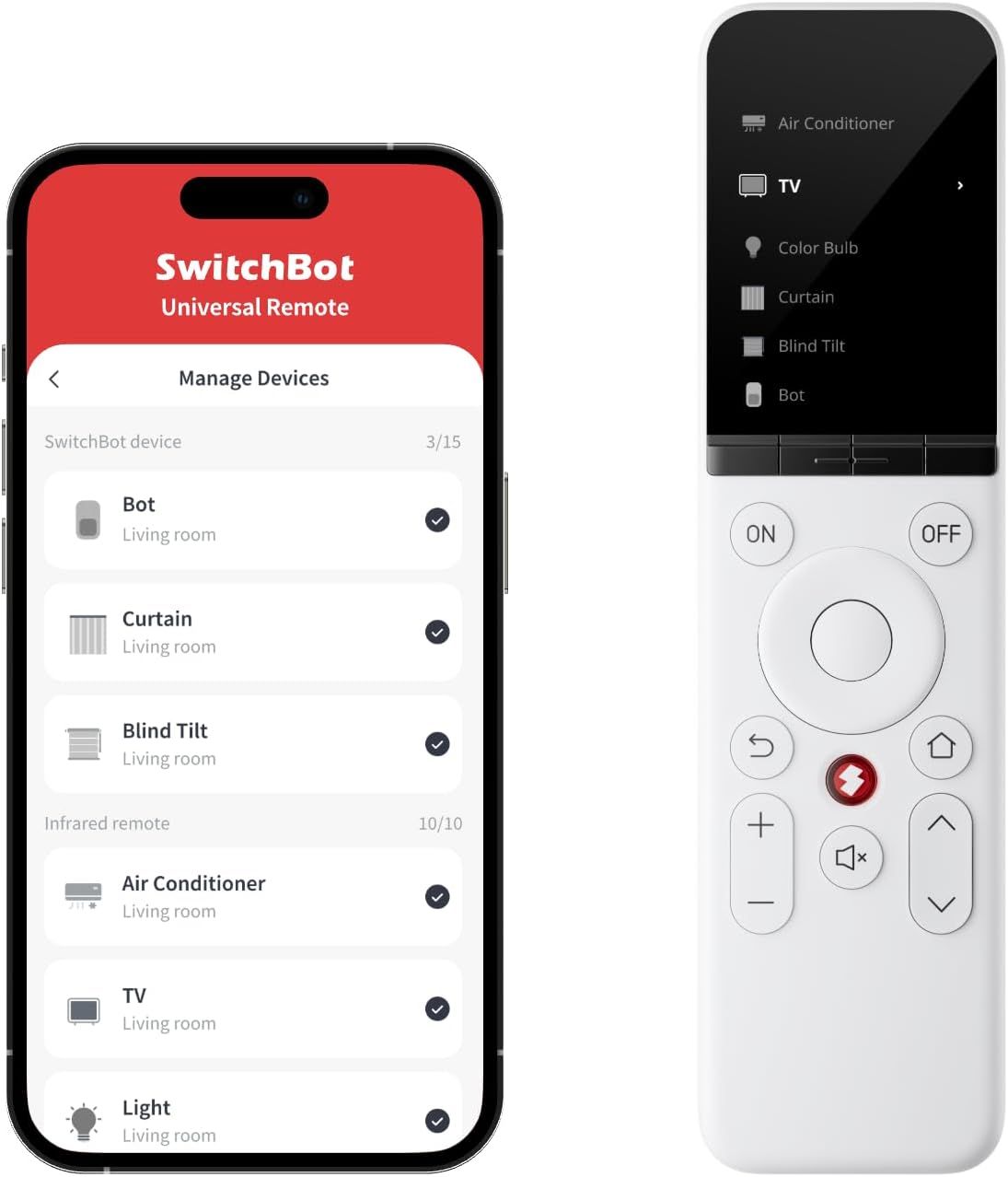
SwitchBot Universal Remote
Universal Remote can control Infrared appliances such as air conditioners, TVs, lights, fans, and projectors at home. It also supports controlling Fire TV, Apple TV, and SwitchBot Bluetooth devices. It supports up to 50 devices in total.
Source link


